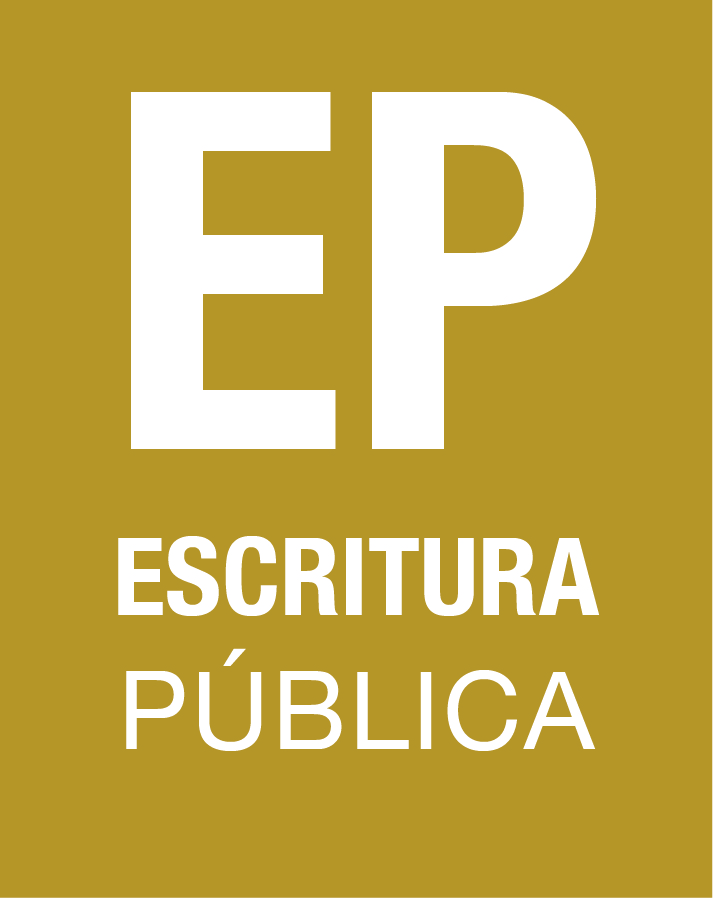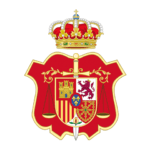EDITORIAL
EDITORIAL
Apoyo del Notariado a la presidencia española de la Unión Europea
España va a ejercer la Presidencia del Consejo de la Unión Europea en el segundo semestre de 2023, a continuación de Suecia, precediendo a Bélgica.
Hubo antes presidencias españolas en 1989, 1995, 2002 y 2010, pues los Estados miembros asumen la Presidencia del Consejo por turnos de seis meses, según un sistema de rotación igual y orden predeterminado.
Tiene lugar esta presidencia cuando falta poco para cumplir cuarenta años del ingreso de España en la UE, el sueño dorado de las generaciones de españoles a las que tocó reconstruir nuestro país tras la devastación y el aislamiento internacional causados por la última guerra civil. Afortunadamente hay ya dos generaciones de españoles que han nacido dentro del espacio de libertad, seguridad y justicia que constituye la Unión Europea y que no conocen otro horizonte vital.
Racionalidad ética y jurídica
Construida sobre cimientos culturales, políticos y sociales bien asentados históricamente, donde confluyen la herencia del Derecho romano, la ética del cristianismo, los principios del liberalismo y el socialismo democráticos de la Edad Moderna y el constitucionalismo del siglo XX, la Unión Europea constituye una fuente imprescindible de racionalidad ética y jurídica que pone límites a la acción política de los Estados miembros, preservando las libertades y derechos básicos de los ciudadanos europeos. Y lo hace no sólo a través de reglamentos y directivas, elaborados mediante un complejo, sofisticado y equilibrado procedimiento legislativo a tres bandas (Comisión, Consejo, Parlamento). También actúa mediante la jurisprudencia del Tribunal de Justicia de la Unión Europea, último garante de que el Derecho de la Unión se interprete y aplique de la misma manera en todos los Estados miembros y de que se cumpla por los propios Estados e instituciones europeas.
Una buena muestra de esta labor del tribunal con sede en Luxemburgo la tenemos en la reciente sentencia de 22 de noviembre de 2022, que declara la nulidad del artículo 1(15)(c) de la Directiva 2018/843, conocida como 5ª Directiva anti-blanqueo de capitales, por entender que el acceso público a la información sobre el titular real de las sociedades mercantiles, realizado a través de los registros mercantiles, infringe de forma innecesaria y desproporcionada los derechos a la intimidad y a la protección de datos personales consagrados en los artículos 7 y 8 de la Carta de los Derechos Fundamentales de la Unión Europea. Esta decisión judicial implica la derogación de la Orden del Ministerio de Justicia 319/2018 y el inmediato cierre de la sección de titulares reales del Registro mercantil español, tal como se ha hecho ya en Alemania, Austria, Bélgica, Irlanda, Luxemburgo y los Países Bajos.
La Unión Europea es hoy en día mucho más que un bloque comercial o una suma de países; se trata de una comunidad de Derecho, que garantiza la libertad, la seguridad, la justicia y la democracia para todos sus ciudadanos. Con estas palabras tan acertadas lo expresaba en la conferencia de apertura del ciclo 2022-2023 de la Academia Matritense del Notariado, pronunciada el pasado 20 de octubre en el Colegio Notarial de Madrid, el vicepresidente de la Comisión Europea para la Promoción del Modo de Vida Europeo, Margaritis Schinas.
Contribución del notariado español
Presente en veintidós de los veintisiete Estados de la UE con más de 20.000 notarios y 200.000 empleados, el Notariado es parte esencial e imprescindible de la comunidad de Derecho y el modo de vida europeos.
El notariado español participa activamente, tanto de forma directa como mediante su integración en el Consejo de los Notariados de la Unión Europea (CNUE), en la creación, desarrollo, aplicación y enseñanza del Derecho de la Unión Europea.
El sistema EUDOC de intercambio internacional seguro de documentos entre notarios, creado en 2021 por los notariados español y alemán y ya operativo; los programas bianuales de formación en Derecho europeo cofinanciados por la Comisión Europea y el CNUE; o la Escuela de Práctica Jurídica Europea, con sede en el Colegio Notarial de Madrid, son sólo algunas de las iniciativas en que se ha materializado la contribución activa del notariado español a la construcción de la comunidad jurídica europea.
A España le espera una ingente tarea con la Presidencia de la Unión Europea. Nuestros representantes van a dirigir nueve de las diez formaciones del Consejo –se exceptúa el Consejo de Asuntos Exteriores-, el Comité de Representantes Permanentes (COREPER) y casi todos los grupos de trabajo. Les corresponderá presentar propuestas, organizar reuniones, buscar consensos con la vista puesta en los intereses generales, y representar a todos los Estados miembros en determinados ámbitos, todo ello en la proximidad de las elecciones al Parlamento Europeo (mayo de 2024) y del nombramiento de una nueva Comisión.
LA UNIÓN EUROPEA ES UNA COMUNIDAD DE DERECHO QUE GARANTIZA LA LIBERTAD, LA SEGURIDAD, LA JUSTICIA Y LA DEMOCRACIA DE TODOS SUS CIUDADANOS
Ello implicará la responsabilidad de cerrar las negociaciones de numerosos expedientes, algunos de ellos de gran trascendencia para la vida cotidiana de los ciudadanos o de las empresas y para la práctica notarial, como podría ser el caso de la revisión del Reglamento europeo de identificación electrónica, del paquete anti-blanqueo de capitales o de alguna de las iniciativas anunciadas por la Comisión Europea en materia de adultos vulnerables y de digitalización societaria (propuesta de Directiva para ampliar y mejorar el uso de herramientas y procesos digitales en el Derecho de sociedades, prevista para el primer trimestre).
Desde esta revista queremos hacer llegar a todos los responsables, funcionarios y personal al servicio de la Administración española encargados de esta quinta Presidencia de la UE nuestros mejores deseos de acierto y éxito en la tarea.
ENGLISH VERSION
Support from Notaries for Spanish presidency of European Union
Spain will hold the presidency of the Council of the European Union in the second half of 2023, following on from Sweden, and prior to Belgium.
There have been previous Spanish presidencies, in 1989, 1995, 2002 and 2010, as the Member States take on the presidency of the Council in six-month shifts, according to a system of equal rotation and predetermined order.
This presidency takes place on the brink of the fortieth anniversary of Spain joining the EU, the ultimate dream of the generations of Spaniards who faced the task of rebuilding the country after the devastation and international isolation caused by the last civil war. Fortunately, two generations of Spaniards have already been born within the area of freedom, security and justice that constitutes the European Union, and who know no other reality in their lives.
Ethical and legal rationality
Built on historically deep-seated cultural, political and social foundations, where the heritage of Roman law, the ethics of Christianity, the principles of liberalism and democratic socialism of the Modern Age and the constitutionalism of the twentieth century converge, the European Union is an essential source of ethical and legal rationality which places limits on the political action of the Member States, preserving the basic freedoms and rights of European citizens. And it does so not only through regulations and directives, drawn up by means of a complex, sophisticated and balanced tripartite legislative procedure (Commission, Council, Parliament). It also acts through the jurisprudence of the Court of Justice of the European Union, the ultimate guarantor that Union law is interpreted and applied in the same way in all Member States, and is complied with by the States and European institutions themselves.
One good example of this task of the Luxembourg-based court may be found in the recent judgment of 22 November 2022, which declares the nullity of Article 1(15)(c) of Directive 2018/843, known as the 5th Anti-Money Laundering Directive, on the basis that public access to information on the beneficial owner of commercial companies, conducted through commercial registers, unnecessarily and disproportionately infringes the rights to privacy and personal data protection enshrined in Articles 7 and 8 of the Charter of Fundamental Rights of the European Union. This judicial decision entails the repeal of Order 319/2018 of the Ministry of Justice and the immediate closure of the beneficial owners section of the Spanish Commercial Register, as has already occurred in Germany, Austria, Belgium, Ireland, Luxembourg and the Netherlands.
The European Union today is much more than a trading bloc or a grouping of countries; it is a community of Law, which guarantees freedom, security, justice and democracy for all its citizens. As the Vice-President of the European Commission for Promoting our European Way of Life, Margaritis Schinas, so eloquently put it in his opening address of the 2022-2023 cycle of the Academia Matritense, delivered on 20 October at the Notarial Chamber of Madrid.
Contribution of Spanish notaries
Present in twenty-two of the twenty-seven EU States, with more than 20,000 notaries and 200,000 employees, the Notariat is a vital and essential part of the European community of Law and way of life.
The Spanish notariat is actively involved, both directly and through its integration within the CNUE (Council of the Notariats of the European Union), in the creation, development, application and teaching of European Union Law.
THE EUROPEAN UNION IS A COMMUNITY OF LAW WHICH GUARANTEES THE FREEDOM, SECURITY, JUSTICE AND DEMOCRACY OF ALL ITS CITIZENS
The EUDOC system for the secure international exchange of documents among notaries, created in 2021 by the Spanish and German notariats and now operational; the biannual European Law training programmes co-funded by the European Commission and the CNUE; and the School of European Legal Practice, based at the Notarial Chamber of Madrid, are just some of the initiatives representing the active contribution of the Spanish notariat in building the European legal community.
A huge task lies in wait for Spain with the Presidency of the European Union. The country’s representatives will lead nine of the ten Council formations –excluding the Foreign Affairs Council–, the Permanent Representatives Committee (COREPER) and almost all the working groups. They will have the job of presenting proposals, organising meetings, seeking consensus with the focus on general interests, and representing all Member States in certain areas, all in the run-up to the elections to the European Parliament (May 2024) and the appointment of a new Commission.
This will entail responsibility for finalising negotiations on numerous matters, some of them of great significance for the daily life of citizens or companies and for notarial practice, such as the review of the European Digital Identification Regulation, the anti-money laundering package or any of the initiatives announced by the European Commission in the field of vulnerable adults and corporate digital transformation (proposal for a Directive to extend and improve the use of digital tools and processes in company law, scheduled for the first quarter).
Our magazine wishes to express our best wishes for sure-footed success in this endeavour, to all the heads of department, public officials and staff in the service of the Spanish authorities responsible for this fifth EU Presidency.



